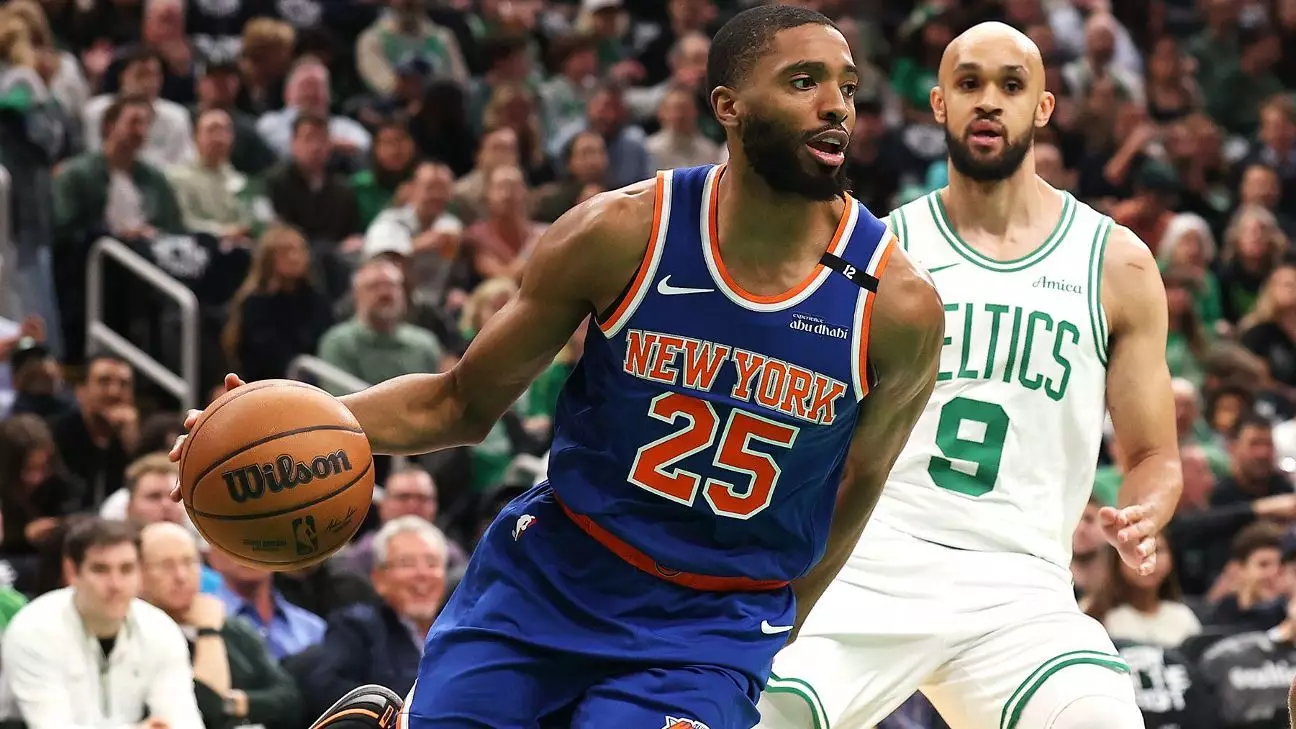The New York Knicks’ decision to extend Mikal Bridges’ contract for four years and $150 million signifies more than just a financial commitment; it embodies a strategic vision rooted in trust and a desire for stability. By opting for this sizable deal—though slightly below the maximum value—the franchise demonstrates a calculated approach, balancing immediate performance with future flexibility. Bridges’ agreement, which includes a player option and a trade kicker, positions him as a cornerstone of the team’s evolving identity. This move underscores the Knicks’ recognition of his versatility and leadership potential, moving beyond mere cap figures to a recognition of his importance in their rebuilding phase.
This extension not only secures Bridges’ presence on the roster but also sends a clear message to the rest of the league: New York is committed to cultivating talent from within, placing faith in the very player who was instrumental in their recent deep playoff run. It signals an intent to forge a competitive squad that values continuity and coherence over short-term fixes. The decision to give Bridges a slight discount—trading some max-contract value for roster flexibility—reveals a mature, savvy front office that understands the importance of balancing star power with versatility and depth.
From Uncertain Beginnings to a Promising Future
Bridges’ first season with the Knicks was a blend of challenges and promising flashes. His transition from a prominent role on the Brooklyn Nets to a more specialized defensive assignment on a team with playoff aspirations was initially disruptive. The adjustment to a reduced offensive role, coupled with a change in team dynamics, tested his adaptability. His struggles with free throws and the physical toll of heavy minutes also raised questions, especially when he publicly expressed fatigue and sought coaching adjustments.
Yet, beneath these hurdles lay the groundwork for growth. Bridges showcased resilience, remaining available for all games—a testament to his durability—and demonstrated proficiency in crucial areas such as perimeter defense, midrange shooting, and corner threes. His performance in the postseason was particularly noteworthy, often providing answers when the team needed it most. His strategic defensive efforts on key opponents and timely scoring runs made the difference in pivotal moments, illustrating his capacity to elevate his game when it mattered.
This evolution from a role player adapting to new responsibilities into a reliable contributor highlights Bridges’ potential to develop further. His willingness to accept a team-first mentality and his resilience in the face of adversity reflect qualities that resonate with the Knicks’ broader culture of grit and determination. His growth also hints at a ceiling that could be higher than many initially anticipated—a fact that undoubtedly influenced the decision to secure him with a long-term deal.
Strategic Significance and the Path Forward for the Knicks
With the Bridges extension now locked in, the Knicks have shifted focus to how they will capitalize on this stability to build an even more formidable roster. The team’s recent playoff surge, driven by Jalen Brunson, Karl-Anthony Towns, and Bridges himself, suggests that the franchise is on the cusp of something significant. The Knicks’ management evidently recognizes that having a core of versatile, committed players is essential for sustained success.
The move also affords the team considerable cap space to pursue additional talent in the coming months. Having Bridges and Brunson under contract with manageable commitments allows the Knicks to target role players and complementary stars, filling gaps without sacrificing their long-term financial health. This approach will likely define their offseason strategy: targeted acquisitions that reinforce their playoff competitiveness while maintaining flexibility to adapt to unforeseen opportunities or challenges.
Bridges’ development, both as a defender and an offensive threat, will be crucial in determining whether the Knicks can truly ascend as title contenders. His willingness to voice concerns about playing time shows a certain self-awareness and leadership that, if harnessed properly, can inspire the entire team. The franchise’s patience in developing his role indicates a belief that he can evolve into a more impactful player, capable of carrying heavier offensive burdens in future playoff campaigns.
The core questions now revolve around how the Knicks will supplement their existing roster. Will they prioritize shooting? Defense? Playmaking? The Bridges deal provides a solid foundation, but the true test lies in the front office’s ability to craft a cohesive, well-rounded team. Their recent moves reveal a strategic patience and a willingness to invest in players who fit their culture, suggesting an optimistic outlook—if slightly cautious about overestimating the immediate ceiling of their young core.
Ultimately, the Bridges extension is both a vote of confidence and a strategic pivot. It signals that the Knicks are now committed to long-term success, betting on the immediate growth of their existing talent while maintaining the flexibility to pursue future stars. If Bridges continues to develop, particularly in areas where he showed promise last season, the Knicks might be setting the stage for a renaissance in New York basketball—one built on resilience, versatility, and strategic foresight.

